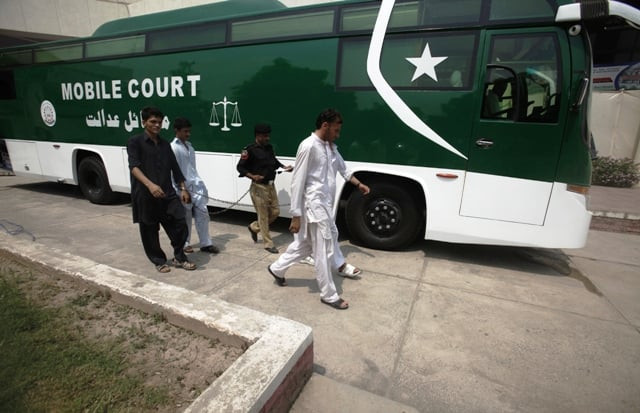Mobile justice
The delays that occur in our judicial decision-making are well known; the initiative of mobile courts is laudable.

The delays that occur in our judicial decision-making are well known, therefore, this initiative is laudable. PHOTO: REUTERS
The first of the cases that was decided by the mobile court was a property matter, which was pending for over a year and was resolved by both parties agreeing to receive half of the amount under dispute. Several juvenile offenders and Afghans, who were illegally staying in Pakistan, were also presented before the court, with verdicts against their action given. While juveniles who are accused of crimes are kept in jails in degrading conditions, Afghans remain one of the most exploited communities in Khyber-Pakhtunkhwa (K-P), so the resolution of these cases is exemplary and goes a long way in displaying the importance of such a system.
The delays that occur in our judicial decision-making are well known, therefore, this initiative is laudable. But although the custom-built buses have gained the attention of the people and the legal fraternity alike, there needs to be more awareness of this project so that it can achieve its proposed end. The model would soon be replicated in all districts of K-P, and an estimated 48 judges and 72 mediators would be trained under this project by the end of the year. Since a general sense of injustice prevails throughout Pakistan, other provinces should now also consider introducing such a system. However, the success of such a system depends on how amicably the mobile courts are able to resolve long-pending cases to the satisfaction of the parties concerned.
Published in The Express Tribune, July 30th, 2013.
Like Opinion & Editorial on Facebook, follow @ETOpEd on Twitter to receive all updates on all our daily pieces.














COMMENTS
Comments are moderated and generally will be posted if they are on-topic and not abusive.
For more information, please see our Comments FAQ